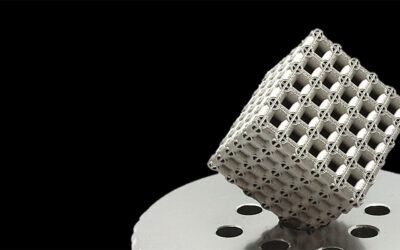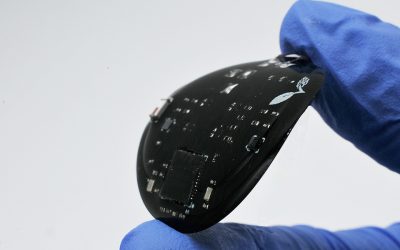The latest issue of Advanced Optical Materials is now available. You can sign up to access all Advanced Optical Materials articles right here!
These articles were highlighted on the covers of the Advanced Optical Materials May issue:
 Nanolasers
Nanolasers
A new nanoplasmonic lasing mechanism is highlighted on the front cover by H.-Y. Wu, M. Lu, B. T. Cunningham, and L. Liu. By using plasmonic nanodome array lasers, it is experimentally demonstrated that the photons emitted by the photoexcited dye molecules couple to the hybridized plasmon mode, which is formed by coupling between localized surface plasmon and surface plasmon–polariton Bloch wave modes. This enables low-threshold, room-temperature lasing reliably emitted in the oblique direction.
Silicon Nanocrystals
On the inside front cover, size-dependent optical absorption of boron-hyperdoped silicon nanocrystals (NCs) is featured. X. D. Pi, D. Yang, and co-workers discover that for small NC sizes, the quantum confinement effect and the dielectric constant of Si NCs can cause a blue shift of the infrared absorption. This blue shift is induced by the localized surface plasmon resonance (LSPR) of Si NCs. For extremely small NC sizes, the significant scattering of free carriers at the NC surface can completely damp the LSPR.
 Upconversion
Upconversion
Room-temperature, wavelength-tunable, single-band upconversion (UC) emissions are designed and demonstrated in lanthanide ion/transition metal Yb3+/Mn2+ codoped fluoride perovskites. In their work, which is presented on the back cover, Q. Y. Zhang and co-workers show that intense and stable room (or high)-temperature UC luminescence and ultralong UC decay lifetimes offer great promise for time-resolved luminescence imaging, lighting, and solid state lasers applications.

















